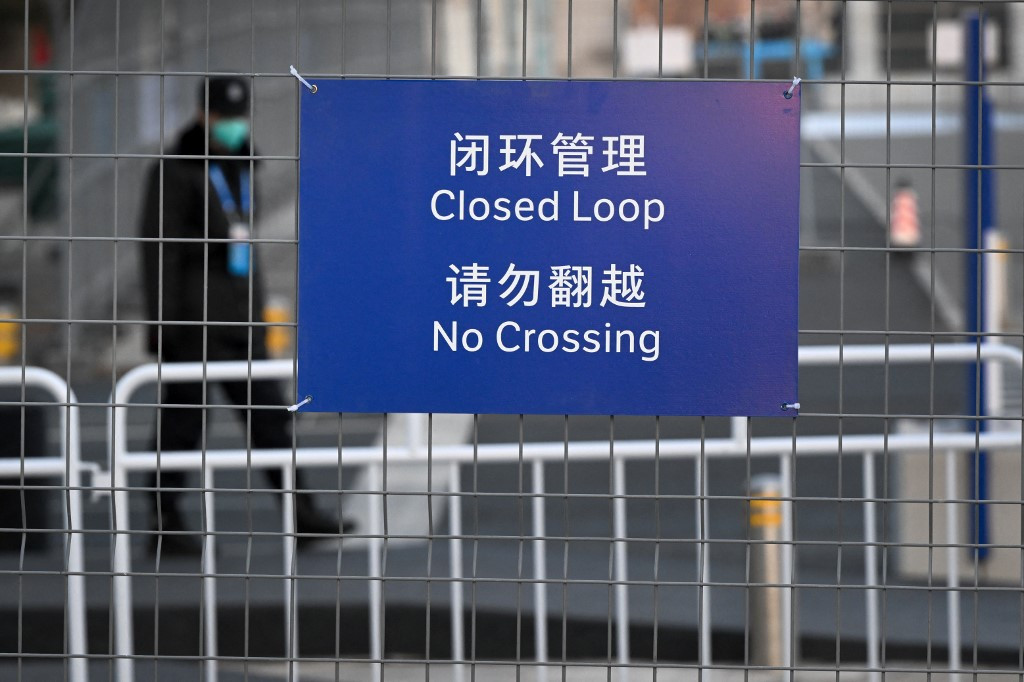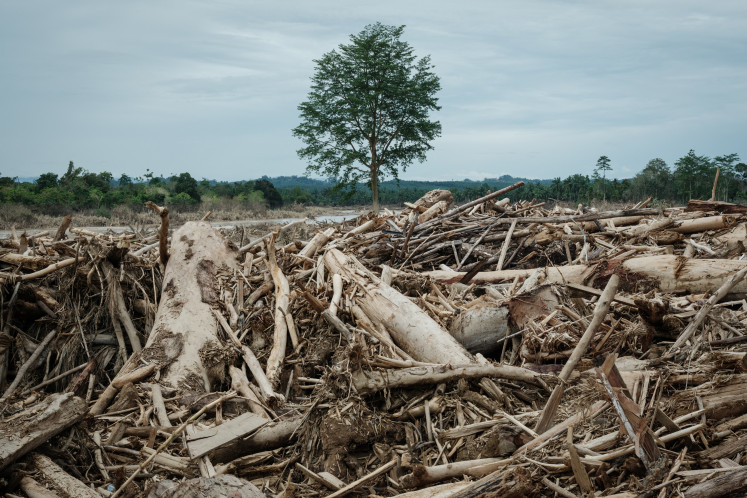Popular Reads
Top Results
Can't find what you're looking for?
View all search resultsPopular Reads
Top Results
Can't find what you're looking for?
View all search resultsBroken China-US relations put the world's health at risk
China and the US cooperated for many years on health issues and it’s in the world's best interests they continue.
Change text size
Gift Premium Articles
to Anyone
The breakdown in relations between the US and China is putting the entire world at risk when the next pandemic strikes.
For 40 years, the two superpowers co-operated on health and bioscience, benefitting the global community, before the relationship began to falter not long before COVID-19 swept through the world. Poor relations could impede planning for the next pandemic.
The world has a lot to lose if scientific collaboration splits into camps. It isn’t only Chinese scientific progress that will slow down. Western scientists will lose some of their best collaborators and access to important data sources, especially as China is one of many sources of new viruses.
Despite the deterioration in relations, doctors and scientists shared a great deal of information from the onset of COVID-19. All of the major breakthroughs in fighting the disease involved cross-border co-operation, including years of work between scientists in the US, Australia, the UK, China and other countries to understand coronaviruses. The US and Germany co-operated on the Pfizer vaccine and there was international collaboration on most of the other vaccine development and testing.
The speed with which the world was able to respond to the pandemic was in part a product of robust global scientific collaboration over previous decades. China’s rapid integration into the cutting edge of global scientific discourse — as described in David Quammen’s book on the virus and the scientists who worked to contain or defeat it, Breathless — made this process more effective.
That process began in the 1970s when the US and China began working together, even before diplomatic relations were normalised in 1979. In those early years, there were groundbreaking discoveries, such as the importance of folic acid supplementation to prevent neural tube defects, preventing millions of birth defects.
The US Centers for Disease Control and Prevention worked most closely with China’s own CDC on many projects, including establishing one of the world’s largest influenza surveillance networks. It also assisted the Chinese CDC’s transformation from a research institute into an action-oriented public health agency.
This work was deepened in the wake of the 2003 SARS outbreak and the 2004-2005 H5N1 avian influenza outbreaks. While these were contained, they increased concern about the likelihood of a global pandemic. The US CDC expanded into more countries as part of its Global Disease Protection Program. But China remained a major focus; critical to monitoring for novel infections and for its scientific innovation.
There was further cooperation in the early 2000s when US institutions collaborated with the Chinese government in preventing and treating HIV/AIDS. China’s efforts were extraordinarily effective, with the number of people living with HIV/AIDS kept to a fraction of what the UN had predicted.
Beyond tracking diseases, Chinese bioscience developed with two institutes in China joining the human genome project. The Beijing Genomics Institute became a world leader in sequencing. When COVID came along, multiple Chinese groups sequenced the SARS-CoV-2 virus much more rapidly than anyone had been capable of doing back in 2003 with SARS-CoV-1.
Things began to unravel in the later part of the Obama administration, and mistrust grew between the powers during the Trump years — worsening as COVID-19’s origins became mired in conspiracy theories. This sparked a response, with China spreading rumours the virus actually originated in the US.
But there is hope. Scientists are still communicating with each other. Even at the height of the COVID pandemic doctors on the ground were actively consulting with their colleagues in Wuhan on treatment.
The National Institutes of Public Health holds regular webinars with scientists and doctors from around the world. The most recent, in September 2022, just to give an example, hosted speakers from China, Germany and Rwanda. There is still some cooperation at some levels of government, and the US continues to have a Health Attache and a large Food and Drug Administration office in Beijing. The positive relationships built over years of collaboration are still a basis for resuming closer cooperation. But it will require some patience and diplomacy on both sides.
The costs of not trying would be to split the global scientific establishment, especially if the kinds of controls that have just been put on scientists working with computer chips were to be put on those in the biomedical sciences.
The result would be poor communication and even less warning and preparedness for the next pandemic.
---
The writer is an assistant professor of political science at Villanova University and a non-resident senior associate of the Trustee Chair in Business and Economics at the Center for Strategic and International Studies.
Originally published under Creative Commons by 360info™.











